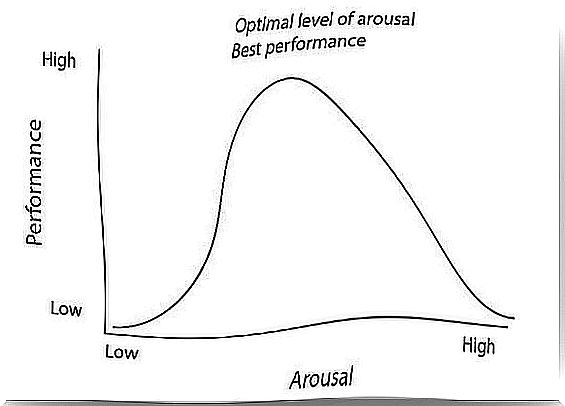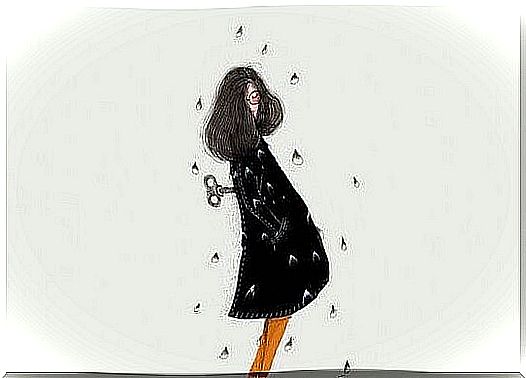Can Stress Lead To Memory Loss?

Stress is one of the biggest enemies we have. Although there are many strategies to reduce it, if you are struggling with a lot of stress, you may actually suffer from memory loss.
There are two types of stress that can lead to memory loss: acute and chronic. Why is this happening? Because stress has a big impact on memory. This affects both new memories as well as the preservation and recall of old memories.
On the other hand, well-managed stress has a good side. In fact, that’s exactly what the Yerkes-Dodson Act says. This law explains that at controlled levels, stress can improve memory and intellectual performance.
This is what we call a “reverse U” in psychology. If we respond to the demands of society with moderate stress, our performance will improve and memory loss will decrease.

But what about the acute and chronic stress we mentioned? Are these positive statements really positive?
It all depends on the situation and what type of stress it is. Now we will look at how we can fit all this together in an understandable way.
Acute stress and memory loss
What do we mean by acute stress? It is stress that is temporary and intense. It only lasts for a short period of time. And it will not last longer than necessary, otherwise we will die.
Let’s say, for example, that we are at work and an urgent project must be carried out. We may be stressed because of the amount of work we have. But when we are done, the stress will go away.
One of the characteristics of this type of stress is “tunnel vision”. It is that our focus is on certain stimuli that increase our discomfort. We are not able to see the situation with perspective, so the focus becomes stress. However, this type of “sight” is temporary.

“Tunnelsyn” is not as negative as it sounds as it helps us to consolidate memories. In fact, according to the Yerkes-Dodson Act, this type of stress can improve the creation of new memories as long as the tension does not get too high.
Students, for example, are sometimes good at taking advantage of this effect when they do pugging before a test and somehow manage to remember everything.
However, as these times of intense stress become more common, it ceases to have a good effect on your memory and becomes negative instead. Especially in the creation of new memories and consolidation of the old ones.
Chronic stress: the most harmful type of stress
Chronic stress leads to significant changes in memory and can even lead to “chronic” damage to the brain. In the case we mentioned earlier, stress can be seen as a one-time event.
But what happens if it lasts longer? For example, if stress at work prevents us from getting sleep. If we still can not enjoy being at home or at a party… Then we may have chronic stress.
When we struggle with acute stress, we feel intense anxiety that goes away. This means that after the stress it becomes calmer; more or less, but we relax. This does not happen with chronic stress.
In this case, we get headaches and other symptoms that affect our body. The level of stress is not as intense, but you can not relax.

This type of stress can have major consequences. It can lead to depression, social isolation, inability to have fun … Work, when it comes to chronic work stress, becomes torture.
We get the feeling that we are not growing in society, we become stuck and at the same time we suffer from severe memory loss.
Although acute stress can be positive, give us energy, and improve our performance and efficiency, it is important to remember that memory loss can occur.
In the same way , it is important to know how to differentiate between acute and chronic stress, since the latter requires all our focus. The effects are much harder to see right away but become more noticeable in the long run.
If it continues, it will not only lead to constant depression and discomfort, but also to possible dementia later. Here, the memory loss caused by stress is much more serious and noticeable.
Therefore, we must try to minimize our daily stress. Let’s try to curb it and at the same time work to get different tools to keep it away.
It is true that stressful situations are a part of life, but it is also true that we can relax or help prevent some of these “natural” stressors.









